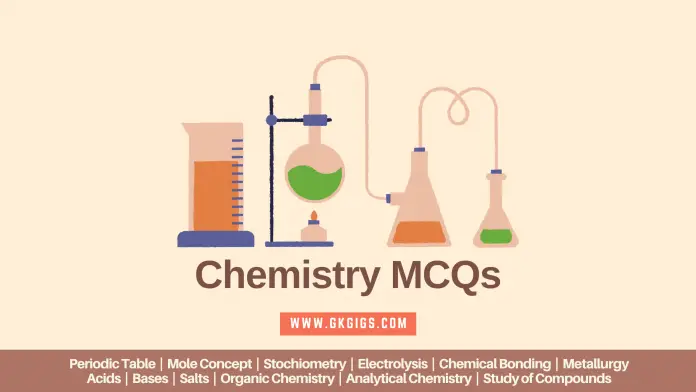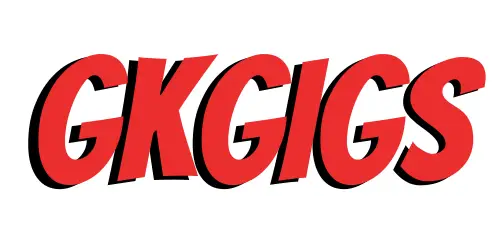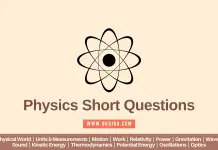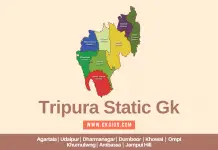
Last Updated: 22 December 2023
Are you looking for Important Chemistry Multiple Choice Questions to read before your class 10 Board Exam?
Well, You came to the right place! This article contains all the chapters that are on your chemistry syllabus for both ICSE and CBSE Boards.
| This Article Contains Chemistry Multiple Choice Questions From The following Chapters |
- Periodic Table
- Mole Concept
- Stochiometry
- Electrolysis
- Chemical Bonding
- Metallurgy
- Acids, Bases, & Salts
- Organic Chemistry
- Analytical Chemistry
- Study of Compounds
Chemistry Multiple Choice Questions will help you to boost your preparation because this article contains mixed questions from all the chapters of your syllabus that one should not miss while preparing for the exam.
All questions are solved and written in simple English step by step to guide and help you achieve good marks in your class 10 Board Examination.
Chemistry Multiple Choice Questions
1. Which among the period 2 elements have the highest electron affinity?
a) Lithium
b) Fluorine
c) Carbon
d) Neon
2. From the following which is composed of all the three kinds of bond i.e., Ionic, Covalent, & Coordinate Bond?
a) Sodium chloride
b) Ammonium chloride
c) Carbon tetrachloride
d) Ammonia
3. Which statement is wrong about Alkalies?
a) They are all saturated hydrocarbons
b) They can undergo addition as well as a substitution reaction
c) They are almost non-polar in nature
d) On complete combustion give out CO2 and H2O
4. Which acid contains four hydrogen atoms in it?
a) Formic Acid
b) Sulphuric Acid
c) Acetic Acid
d) Nitric Acid
5. Which Acid is known as “Oil of Vitriol”?
a) Sulphuric Acid
b) Hydrochloric Acid
c) Nitric Acid
d) Phosphoric Acid
6. A gas cylinder of the capacity of 20 dm3 is filled with gas X, the mass of which is 10 g. When the same cylinder is filled with hydrogen gas at the same temperature and pressure the mass of the hydrogen is 2 g. What is the Relative Molecular Mass of the gas?
a) 10
b) 15
c) 20
d) 25
7. The aqueous solution of the following compounds which contains both ions and molecules is:
a) Hydrochloric Acid
b) Nitric Acid
c) Sulphuric Acid
d) Acetic Acid
8. Which Metal Oxide can react with Acid as well as Alkali?
a) Calcium oxide
b) Copper(II) oxide
c) Silver oxide
d) Aluminium oxide
9. CO2 and SO2 gas can be distinguished by using?
a) Lime Water
b) Acidified Potassium Dichromate Paper
c) Moist Blue Litmus
d) Red Litmus Paper
10. The organic compound obtained as the end product of the fermentation of sugar solution is?
a) Ethanol
b) Methanol
c) Ethane
d) Methanoic Acid
Related: Physics Short Questions ICSE & CBSE Class 10 (2024)
11. A black color solid which on reaction with dilute Sulphuric Acid forms a blue-colored solution is?
a) Carbon
b) Manganese(IV) oxide
c) Copper(II) oxide
d) Lead(II) oxide
12. A particular solution contains molecules and ions of the solute so it is a?
a) Weak Acid
b) Strong Acid
c) Weak Base
d) Strong Base
13. Which compound liberates reddish-brown gas around the anode during electrolysis in its molten state?
a) Lead(II) bromide
b) Copper(II) oxide
c) Sodium chloride
d) Copper(II) sulphate
14. An organic compound undergoes addition reactions and gives a red color precipitate with ammonical cuprous chloride. What is the organic compound?
a) Ethane
b) Ethene
c) Ethyne
d) Ethanol
15. Which of the following is an organic weak acid?
a) Formic Acid
b) Sulphuric Acid
c) Nitric Acid
d) Hydrochloric Acid
16. During Ionization metals lose electrons, what is this change called?
a) Displacement
b) Redox
c) Reduction
d) Oxidation
17. Which of the following is not true about metals?
a) Metals are good conductors of electricity
b) Metals form non-polar covalent compounds
c) Metals are malleable and ductile
d) Metals will have 1 or 2 or 3 electrons in their valence shell
18. Aqua regia is a mixture of?
a) Dilute hydrochloric acid and concentrated nitric acid
b) Concentrated hydrochloric acid and dilute nitric acid
c) Concentrated hydrochloric acid [1 part] and concentrated nitric acid [3 parts]
d) Concentrated hydrochloric acid [3 part] and concentrated nitric acid [1 part]
19. The organic compound mixed with ethanol to make it spurious is?
a) Methanol
b) Methanal
c) Methanoic Acid
d) Ethanoic Acid
20. The number of electrons present in the valence shell of a halogen is?
a) 1
b) 3
c) 5
d) 7
Related: List Of NITs And IITs And Their Mottos (State Wise)
21. Which of the following properties do not match with elements of the halogen family?
a) They are metallic in nature
b) They have seven electrons in their valence shell
c) They are highly reactive chemically
d) They are diatomic in their molecular form
22. The number of C-H bonds in ethane molecules are:
a) Four
b) Six
c) Eight
d) Ten
23. The unsaturated hydrocarbons undergo:
a) Substitution Reaction
b) Oxidation Reaction
c) Addition Reaction
d) None of the above
24. What is the functional group present in acetic acid?
a) Ketonic >C=O
b) Hydroxyl -OH
c) Aldehydic -CHO
d) Carboxyl -COOH
25. When dilute sulphuric acid reacts with iron sulphide, the gas evolved is?
a) Hydrogen sulphide
b) Sulphur dioxide
c) Sulphur trioxide
d) Vapours of sulphuric acid
26. Hydrogen chloride gas is highly soluble in water is dried by?
a) Phosphorous pentaoxide
b) Anhydrous calcium chloride
c) Quick Lime
d) Concentrated sulphuric acid
27. The brown ring test is used for the detection of?
a) CO3-2
b) NO3–
c) SO32-
d) Cl–
28. In the periodic table alkali metals are placed in the group?
a) 1
b) 11
c) 17
d) 18
29. Hydroxide of this metal is soluble in sodium hydroxide solution?
a) Lead
b) Magnesium
c) Silver
d) Copper
30. Which metal is liquid at room temperature?
a) Potassium
b) Zinc
c) Mercury
d) Gold
Related: GK For Quiz Online: Test Your General Knowledge IQ
31. Which of the following metallic oxides cannot be reduced by normal reducing agents?
a) Copper(II) oxide
b) Zinc oxide
c) Iron(III) oxide
d) Magnesium oxide
32. Which is a weak electrolyte among the four?
a) Aqueous acetic acid
b) Dilute Sulphuric Acid
c) Sodium chloride solution
d) Dilute Hydrochloride solution
33. Which is an Alkaline earth metal?
a) Lead
b) Copper
c) Calcium
d) Potassium
34. What is the vapor density of CO2? [C=12, O=16]
a) 12
b) 16
c) 44
d) 22
35. Which element of period-3 has zero electron affinity?
a) Neon
b) Argon
c) Sulphur
d) Sodium
36. Among the period 2 elements, Which element has the highest electron affinity?
a) Lithium
b) Carbon
c) Chloride
d) Fluorine
37. Which statement is incorrect about Alkanes?
a) They are hydrocarbons
b) There is a single covalent bond between carbon and hydrogen
c) They can undergo both substitutions as well as addition reactions
d) On complete combustion they produce carbon dioxide and water
38. Which of these will act as a non-electrolyte?
a) Liquid carbon tetrachloride
b) Acetic Acid
c) Sodium hydroxide aqueous solution acid
d) Potassium chloride aqueous solution
39. Which will not produce acid when made to react with water?
a) Nitrogen dioxide
b) Carbon monoxide
c) Zinc oxide
d) Sulphur trioxide
40. Which metallic oxide is amphoteric in nature?
a) Copper(II) oxide
b) Barium oxide
c) Calcium oxide
d) Zinc oxide
Related: 120+ Biology Differentiate Between Questions (CBSE & ICSE)
41. S + 2H2SO4 → 3SO2 + 2H2O. What is the role played by concentrated sulphuric acid?
a) Oxidising agent
b) Non-volatile acid
c) Dehydrating agent
d) None of the above
42. Nitrogen gas can be obtained by heating?
a) Ammonium nitrate
b) Ammonium nitrite
c) Magnesium nitride
d) Ammonium chloride
43. Which of the following is not a typical property of an ionic compound?
a) High melting point
b) Conducts electricity in the molten and in the aqueous solution state
c) They are insoluble in water
d) They exist as oppositely charged ions even in the solid-state
44. The metals zinc and tin are present in the alloy?
a) Solder
b) Brass
c) Bronze
d) Duralumin
45. Ionization Potential increases over a period from left to right because the:
a) Atomic radius increases and nuclear charge increases
b) Atomic radius decreases and nuclear charge decreases
c) Atomic radius increases and nuclear charge decreases
d) Atomic radius decreases and nuclear charge increases
46. A compound X consists of only molecules. Hence X will have:
a) A crystalline hard structure
b) A low melting point and low boiling point
c) An ionic bond
d) A strong force of attraction between its molecules
47. When fused lead bromide is electrolyzed we observe?
a) A silver-grey deposit at the anode and a reddish-brown deposit at the cathode
b) A silver-grey deposit at the cathode and a reddish-brown deposit at the anode
c) A silver-grey deposit at the cathode and reddish-brown fumes at the anode
d) Silver grey fumes at the anode and reddish-brown fumes at the cathode
48. The main ore used for the extraction of iron is?
a) Haematite
b) Calamine
c) Bauxite
d) Cryolite
49. Heating an ore in a limited supply of air or in the absence of air at a temperature just below its melting point is known as?
a) Bessemerisation
b) Ore dressing
c) Smelting
d) Calcination
50. If element A belongs to Period 3 and Group II then it will have?
a) 3 shells and 2 valence electrons
b) 2 shells and 3 valence electrons
c) 3 shells and 3 valence electrons
d) 2 shells and 2 valence electrons
Related: Simple Interest And Compound Interest Multiple Choice Questions
51. The molecule containing a triple covalent bond is?
a) Ammonia
b) Methane
c) Water
d) Nitrogen
52. The electrolyte used for electroplating an article with silver is?
a) Silver nitrate solution
b) Silver cyanide solution
c) Nickel sulphate solution
d) Sodium argentocyanide solution
53. Aluminium powder is used in thermite welding because:
a) It is corrosion resistant
b) It is a strong oxidizing agent
c) It is a strong reducing agent
d) It is a good conductor of heat
54. The I.U.P.A.C name of acetylene?
a) Propane
b) Propyne
c) Ethyne
d) Ethene
55. Among the elements given below, the element with the least electronegativity is?
a) Carbon
b) Lithium
c) Fluorine
d) Boron
56. Identify the property that does not describe the property of alkenes?
a) They are unsaturated hydrocarbons
b) They decolorize bromine water
c) They can undergo addition as well as substitution reactions
d) They undergo combustion with oxygen forming CO2 and H2O
57. Which is not the alloy of copper?
a) Brass
b) Solder
c) Bronze
d) Duralumin
58. Bonding in this molecule can be understood to involve coordinate bonding:
a) Ammonium chloride
b) Hydrogen
c) Hydrogen chloride
d) Carbon tetrachloride
59. Which of the 4 would weigh the least?
a) 2-gram atoms of Nitrogen
b) 6.02 x 1023 atoms of carbon
c) 1 mole of silver
d) 22.1 liters of oxygen gas at 1 atm and 273K
[ Atomic masses: Ag=108, N=14, O=16, C=12 ]
60. An element with the atomic number 19 will most likely combine chemically with the element whose atomic number is:
a) 17
b) 11
c) 20
d) 18
Related: MCQ Questions On Volume And Surface Area Of Solids
61. The ratio between the number of molecules in 2 g of hydrogen and 32 g of oxygen is?
a) 0.01:1
b) 1:3
c) 1:2
d) 1:1
[ Given H=1, O=16 ]
62. What are the two main metals in bronze?
a) Copper and Tin
b) Copper and Nickel
c) Copper and Zinc
d) Copper and Lead
63. What are the particles present in strong electrolytes?
a) Only Molecules
b) Mainly Ions
c) Ions and Molecules
d) Only Atoms
64. What is the Aim of the Fountain Experiment?
a) HCl turns blue litmus red
b) HCl is highly soluble in water
c) HCl is denser than air
d) HCl fumes in moist air
65. Which chloride forms a precipitate that is soluble in excess of ammonium hydroxide?
a) Calcium chloride
b) Ferrous chloride
c) Ferric chloride
d) Copper chloride
66. If the molecular formula of an organic compound is C10H18, it is a?
a) Alkene
b) Alkane
c) Alkyne
d) Not a hydrocarbon
67. Which of the following is a common characteristic of a covalent compound?
a) High melting point
b) Consists of molecules
c) Always soluble in water
d) Conducts electricity when it is in the molten state
68. What should we add to increase the pH value of a neutral solution?
a) Acid
b) Alkali
c) Acid Salt
d) Salt
69. How is Anhydrous iron (III) chloride prepared?
a) Direct Combination
b) Simple Displacement
c) Decomposition
d) Neutralization
70. Which cation does not form a precipitate with ammonium hydroxide but forms with sodium hydroxide?
a) Ca2+
b) Ba+2
c) Cs+
d) Al+3
Related: Exponents And Powers Multiple Choice Questions (CBSE & ICSE)
71. Which salt solution does not react with ammonium hydroxide?
a) Calcium nitrate
b) Zinc nitrate
c) Lead nitrate
d) Copper nitrate
72. The organic compound which undergoes substitution reaction?
a) C2H2
b) C2H4
c) C10H18
d) C2H6
73. The electrolysis of acidified water is an example of?
a) Reduction
b) Redox Reaction
c) Oxidation
d) Synthesis
74. What is the IUPAC name of “dimethyl ether”?
a) Ethoxy methane
b) Methoxy methane
c) Methoxy ethane
d) Ethoxy ethane
75. What is the catalyst used in the Contact Process?
a) Copper
b) Iron
c) Vanadium pentoxide
d) Manganese dioxide
76. Which electrolyte completely dissociates into ions?
a) Alcohol
b) Carbonic Acid
c) Sucrose
d) Sodium hydroxide
77. Which is the most electronegative element from the following elements?
a) Magnesium
b) Chlorine
c) Aluminium
d) Sulphur
78. What is the reason for using Aluminium in the alloy Duralumin?
a) Aluminium brings lightness
b) Aluminium is brittle
c) Aluminium gives strength
d) Aluminium lowers the melting point
79. Which drying agent is used to dry HCl gas?
a) Conc. H2SO4
b) ZnO
c) Al2O3
d) CaO
80. Which hydrocarbon is a greenhouse gas?
a) Acetylene
b) Ethylene
c) Ethane
d) Methane
Related: Time And Distance Multiple Choice Questions (Boost Your IQ)
81. Why gas is used for welding purposes?
a) Ethyne
b) Ammonia
c) Octane
d) Heptane
82. What happens when the gaseous product obtained by dehydration of ethyl alcohol is passed through bromine water?
a) Bromine water smells like antiseptic
b) Reddish-brown color of bromine water remains
c) Reddish-brown color of bromine water disappears
d) Reddish-brown color of bromine water changes to a colorless solution
83. What is the valency of alkali metal?
a) +2
b) +1
c) -1
d) -2
84. Aluminium oxide is?
a) Acidic oxide
b) Basic oxide
c) Neutral oxide
d) Amphoteric oxide
85. What is the main components of the alloy Bronze?
a) Mn
b) Al
c) Sn
d) Cu
86. The main purpose of Roasting and Calcination is to convert?
a) Ore into metallic carbonate
b) Ore into metal
c) Ore into oxide
d) None of these
87. Chemically, Rust is?
a) Fe3O4
b) Fe2O3
c) Fe2O3. xH2O
d) Fe3O4. xH2O
88. What is the major impurity present in iron?
a) Carbon
b) Calcium
c) Sodium
d) Phosphorus
89. Which pair of metals are rendered passive on reaction with concentrated nitric acid?
a) Fe, Al
b) Mg, Fe
c) Zn, Al
d) Cu, Zn
90. What must be added to sodium chloride to obtain hydrogen chloride?
a) Dil. Sulphuric Acid
b) Conc. Sulphuric Acid
c) Dil. Nitric Acid
d) Conc. Nitric Acid
Related: Area And Perimeter Multiple Choice Questions (CBSE & ICSE)
91. Which experiment demonstrates that hydrogen chloride is very soluble in water?
a) Catalytic Oxidation of Ammonia
b) Fountain Experiment
c) Catalytic Reduction of HCl
d) Bosch Process
92. Which compound on reaction with HCl leaves a yellow residue behind?
a) MnO2
b) Na2S2O3
c) AgCl
d) Conc. H2SO4
93. Which salt is soluble in hot water but insoluble in cold water?
a) Pb(NO3)2
b) PbCl2
c) KCl
d) HClO
94. Which method is used to collect hydrogen chloride gas?
a) Downward Displacement of Water
b) Downward Displacement of Air
c) Upward Displacement of Water
d) Upward Displacement of Air
95. Impured iron is purified by which process?
a) Reduction
b) Redox
c) Oxidation
d) None of the above
Related: List Of Indian State Foundation Day With GK Questions
96. Which solution gives a precipitate with HCl?
a) AgNO3
b) NH4Cl
c) Zn
d) Aqua Regia
97. Which promoter is used in Haber’s process?
a) Molybdenum
b) Calcium oxide
c) Lead
d) Finely divided Iron
98. What is the saturated solution of ammonia in water?
a) Liquid Ammonia
b) Nersler’s Reagent
c) Liquid Quicklime
d) Liquor Ammonia Fortis
99. Which compound is distilled to prepare “Oil of Vitriol”?
a) Ferrous sulphate
b) Ferric hydroxide
c) Ferrous hydroxide
d) Ferrous nitrate
100. What is the chemical name of Oleum?
a) Hydrated Sulphuric acid
b) Acetyl Aldehyde
c) Ortho sulphuric
d) Pyrosulphuric Acid
101. The corrosive action of sulphuric acid on the skin is due to its?
a) Dehydrating Nature
b) Volatile Nature
c) Reducing Nature
d) Oxidising Nature
102. Which promoter is used in the Contact process?
a) Vanadium pentaoxide
b) Potassium oxide
c) Ferric hydroxide
d) Quartz
103. What is the formula for the next higher homologue for Ethanal?
a) CH3OH
b) CH3CHO
c) C3H4
d) C3H8
104. What is the IUPAC name of CH3-C≡CH?
a) Prop-2-yne
b) Propene
c) Propanal
d) Propyne
105. What is the pH of the copper chloride solution?
a) More than 7
b) Less than 7
c) Equal to 7
d) None of these
Related: GK Questions And Answer On Indian Rivers (For Competitive Exam)
106. Soluble salt like sodium sulphate can be prepared in the laboratory by which process?
a) Titration
b) Synthesis
c) Displacement
d) Decomposition
107. Sulphate ion (SO42-) can be detected by using?
a) Dilute Sulphuric Acid
b) Concentrated Sulphuric Acid
c) Both of These
d) None of the Above
108. Cupric hydroxide is a?
a) Blue Solution
b) Bluish White Precipitate
c) White Precipitate
d) Pale Blue Precipitate
109. What is the ratio by volume of Nitrogen and Hydrogen in Haber’s process?
a) 3:1
b) 4:2
c) 1:3
d) 2:4
110. Which chemical is used as a drying agent for ammonia?
a) Magnesium pentaoxide
b) Calcium hydroxide
c) Calcium oxide
d) Sodium chloride
| Read More |
- 100+ General Knowledge Questions On Northeast India
- List Of Important Days And Dates In India (2024 Updated)
- List of Programming Languages and Their Developers
- 200+ List Of First In India General Knowledge (2024 Updated)













Thanks, vеry nice bⅼog!